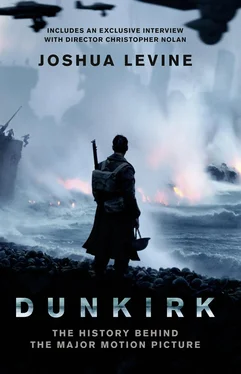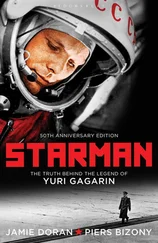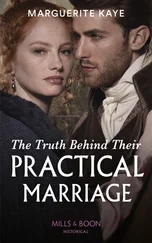An Interview between Joshua Levine and Director Christopher Nolan
Joshua Levine: You’re a British person who works in America. When you said you wanted to make this very British subject into a movie, what did people say?
Christopher Nolan: I had the script finished before I told anyone. Emma [Thomas – producer of Dunkirk ] knew. She had originally given me your book [ Forgotten Voices of Dunkirk ] to read. We had made a Channel crossing many years ago with a friend of ours (who’s actually in the film in one of the boats) in the spirit of re-enacting that historic journey. It was one of the most difficult and frankly dangerous-feeling experiences I have ever had. I was very grateful to get back in one piece, and that was without people dropping bombs on us. It was literally just the Channel, the elements and the three of us on a small boat.
JL: And you made that crossing as an homage?
CN: Yes. We did it a little bit too early in the year. It was Easter, I think it was April rather than May. It was a little too cold and we went over to Dunkirk specifically, but not as massive history buffs. We knew the story – we had grown up with it and our friend had a sail boat, and he said let’s just do it. It turned out to be very, very difficult (at least for me and Emma) venturing out into the Channel in a small boat. It’s a considerable thing to do. The idea of doing it and knowing that you’re heading into a war zone is unthinkable really. And that’s where the analysis of what Dunkirk means as mythology, or as modern mythology, or whatever you want to call it, can’t be overstated. By actually getting on a boat and making that trip you can glimpse the bravery of the people who did it. It’s just such a courageous thing for them to have done.
Emma and I talked about it years later and started reading first-hand accounts. We were curious about why no one had made a film about it – in modern times. It’s one of the greatest human stories. It’s universal, I think. So I did a lot of reading, danced around how to go about it and why people hadn’t in the past. Ultimately we came to the conclusion that the reason people hadn’t was because it was a defeat. And it’s an expensive film. It’s big. It’s an epic any way you slice it up. We tried to approach it in a very intimate way, but it’s an epic and so you need the resources of the industrial Hollywood machine behind it, and getting those resources channelled into a tale, however great, of defeat was a little tricky. But actually what drew us to the story is that it’s not a victory, it’s not a battle. It’s an evacuation. It’s a survival story.
So I don’t see it as a war film. I see it as a survival story. That’s why we don’t see the Germans in the film and why it’s approached from the point of view of the pure mechanics of survival rather than the politics of the event.
JL: It doesn’t feel like a war film. I remember reading about George Orwell’s Room 101, which contains the worst things in the world from your own personal perspective, this faceless enemy which is the nightmare of your imagination, it’s whatever terrifies you. And the film is almost a horror film, or a psychological horror film, or something like that?
CN: It’s a suspense film, but we try and push the visceral suspense as far as we can. So you get into the language of horror films, definitely.
JL: There’s almost an implied contract that if you’re going to make a film about the Nazis in any way you have to show them for what they were. And you haven’t done that.
CN: No. Well, when I was first writing it – it was a crawl at the beginning, but it tells you what’s going on – I used the word Nazi constantly and had people referring in the dialogue to Nazis. I wanted to continually remind the modern audience how evil and awful the enemy was and get them alongside. And then at some point – I think it was in my discussions with Mark Rylance, who first came aboard the project – I realised that because I had made the decision to never actually show Germans, even referring to them was pointless. You don’t want to be in a middle ground. That is to say that you either have to try and address the entire concept of Nazi evil and ideology, or you have to completely circumvent it by not showing them, by having them be subliminal creatures in a way, having them as an off-screen menace. It’s like the shark in Jaws , maybe you see the fin but you don’t see the shark. And that way your mind, and even your ethical sense of who you are identifying with in the film, automatically makes them the worst thing possible out there.
JL: The audience can run with their imagination and take it wherever it goes. But because this film will be seen by a lot of young people who know nothing about the Second World War at all, is there an obligation to underline who the Nazis were?
CN: I think the responsibility is to not present a misleading portrait of the Nazis, but Nazism is notable by its absence and being notable I think is the proper thing. You want the feeling of crisis and jeopardy in Europe. You want the feeling of these British and French soldiers on the ground at a crucial moment in history. You want to feel like this is the absolute crisis point. I did that, from a cinematic point of view, by not personalising, not humanising the enemy, which most war films, one way or another, tend to want to do at some point. Even as far back as All Quiet on the Western Front there’s a thread in war films of wanting to be sophisticated, wanting to humanise the enemy. But of course when you put yourself in the position of a soldier on that beach, for the vast majority their contact with the enemy is extremely limited and intermittent. Most of what you are seeing is bombs dropping. Most of what you are hearing is gunfire from a couple of miles away, which must have been more terrifying than we can really imagine as it gets closer and closer and closer. What we are trying to do with the sound mix right now is to figure out how to create that audio space, so that the battle appears to be ten miles away, then seven miles away, then four miles away, and how absolutely terrifying it would have been for the guys there on the beach.
It’s what you don’t know that is important in the film. So, in the expositional scene we give hopefully just enough historical information. The idea is that [the characters] Tommy and Gibson wouldn’t know anything about what was going on and then they’d be given disquieting scraps of information like ‘we’re trying to get forty-five thousand people off the beach’, ‘there are four hundred thousand people on the beach’ and then you get that ‘OK, every man for himself’ feeling. I was interested in the idea of what people wouldn’t know rather than explaining everything we know now. If you’re inside an event, particularly back then, when you didn’t have smartphones and everything, it’s pretty difficult to get any perspective on what’s going on. One of the most moving things about the Dunkirk story to me – in fact, definitely the single most moving thing – is that when these guys finally were rescued, when they finally made their way home, they went home with a sense of shame. That they went home, the vast majority of them, thinking they were going to be a huge disappointment to the British people back home and then found that they were welcomed as heroes was to me one of the most extraordinary turnarounds, emotionally, in history, and it was because they didn’t know what was going on. So we have them reading Churchill’s speech in the newspaper. They wouldn’t have been in Parliament, they wouldn’t have been able to do what films do traditionally, which is to cut to Winston Churchill speaking to the Cabinet or preparing his speech. They were just going to get it from the newspapers, so they find out after the fact what it is that they’ve been through.
Читать дальше












